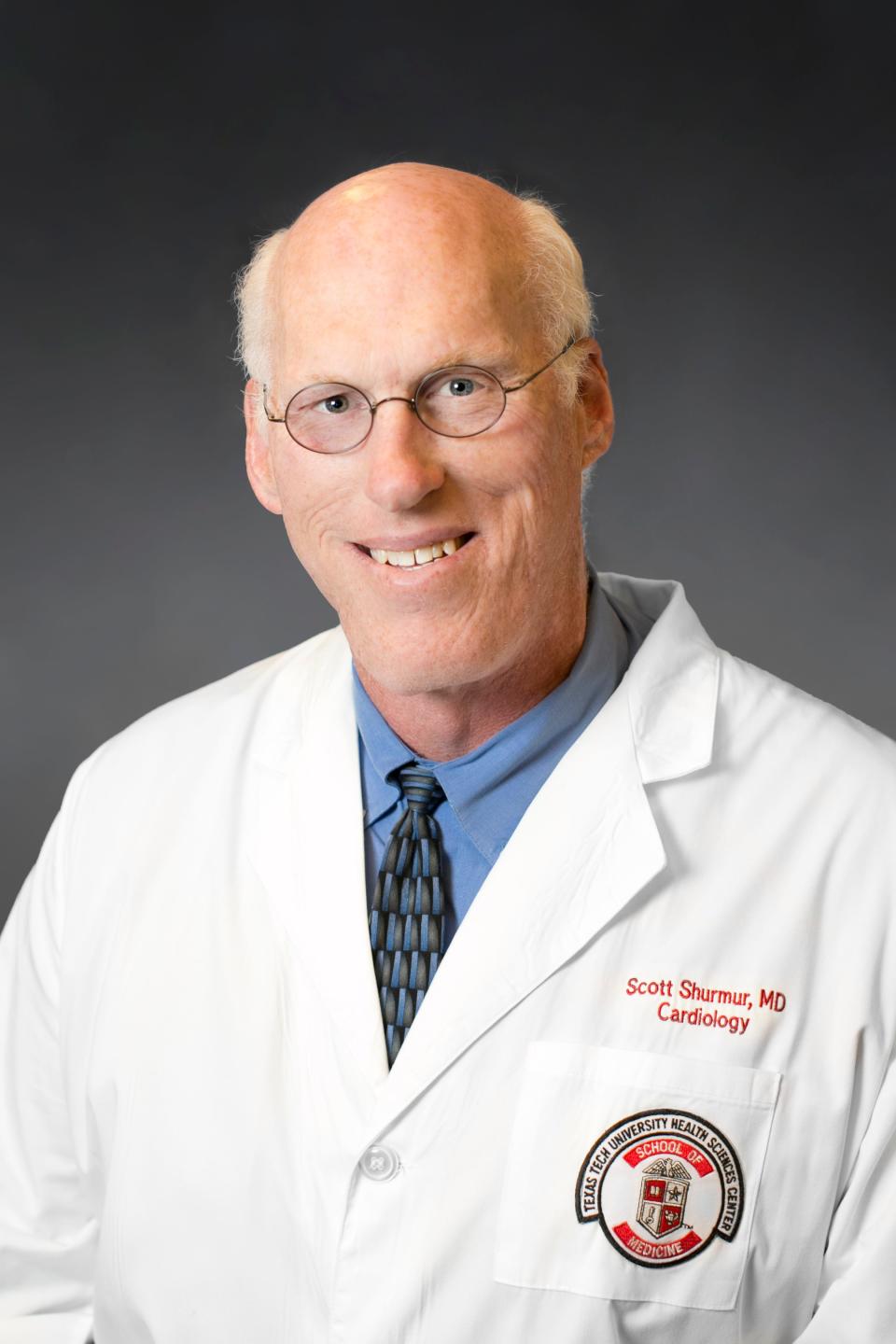Women's Health Month: TTUHSC experts advocate for women's heart health, share personal story
Pressure in the chest and tingling in the left arm — what feels like an anxiety attack might be something more sinister.
With May being Women's Health Month, experts at Texas Tech Health Sciences Center are reminding the public that heart disease is still the number one killer in women, with one individual sharing her story of surviving a potential heart attack.
While teaching her 15-year-old daughter how to drive on her first road trip, Prim Naegele, 45, had just switched from the driver seat to the passenger seat when she noticed something was off.
She described pain occurring in her chest and the left side of her neck.
“I thought that's kind of weird, but kind of blew it off as just anxiety with a new driver and thinking that was it,” she said.
The next day, she again experienced the pain and this time, she rushed to the clinic, but all of the labs and tests came back normal.
"They recommended that I get a stress test in the next six months or so,” she said.
One day, the pain returned, and this time shot down her left arm. Again, she drove to the clinic, and just like before, all her tests returned normal.
“But thankfully, the doctor did not feel we should just let it go,” Naegele said. “He recommended that I get a stress test. That test indicated a slight abnormality."
After a CAT scan, it became apparent what was going on. Her doctor had caught an 80% blockage of a left anterior descending artery. This blockage — if at 100% — leads to a widowmaker heart attack — whose name aptly describes what happens if someone suffers from one.
The necessary procedure was performed to avert the crisis. While it's abnormal for a person with no health, lifestyle, or family history risks to develop such a condition, Naegele said her case is a cautionary one.
Dr. Scott Shurmur, a cardiologist with Texas Tech Physicians, said education efforts by organizations like the American Heart Association and the TTUHSC’s Laura W. Bush Institute for Women’s Health are proving effective in raising awareness about how to prevent, recognize and treat cardiovascular conditions in women.
However, heart disease among women is often still underestimated.
“Despite all of the press that breast cancer gets, for instance, heart disease is still the number one killer of women,” Shurmur said. “In as many as 25% of coronary events, heart attacks and sudden death can be the first symptom. And sudden death as the first symptom is more common in women than men.”

Shurmur said there hasn't been any progress in combating heart disease, with incidents not declining in the past five years. He credits this issue to the increasing preponderance of type 2 diabetes and obesity in individuals.
It's also due to women experiencing less specific symptoms of heart disease, unlike men.
“It can just be some fatigue, some nausea, some shortness of breath. It doesn't have to be the classic crushing central chest pain that we see in TV and movies. That certainly does happen, but not exclusively,” Shurmur said.
If someone thinks they are experiencing a cardiac episode, Shurmur advises them to be their own advocate and speak up.
"Be insistent. If one is worried about their cardiac health or potential cardiac concerns and their caregiver doesn't seem to be paying attention, then make some noise," Shurmur said. "Ask questions. Remind the practitioner, perhaps, that this is a gender equality issue. And heart disease does not discriminate between genders.”
Naegele's story is one of many nationwide, but unlike many others, she was fortunate. She now serves as the assistant director at TTUHSC's Laura W. Bush Institute for Women’s Health — an institute that supports research in gender-specific health issues with a key focus on education and advocacy.
The institute's executive director, Connie Tyne, said that for a time, medicine treated both men and women on a generic level, but what might work for men might not necessarily work for women.
"There was a huge need for women's health research, particularly in the biological sex differences in medicine and disease,” Tyne said.
This is also where the institute steps in to advocate for women.
"We are strong advocates on every level,” Tyne said. “We advocate to physicians to learn new things. We advocate for women to take that information to their doctor. We also advocate nationally in organizations that try to get the word out to everyone that biological sex differences are very real.”
This article originally appeared on Lubbock Avalanche-Journal: TTUHSC experts advocate for women's heart health, share personal story

